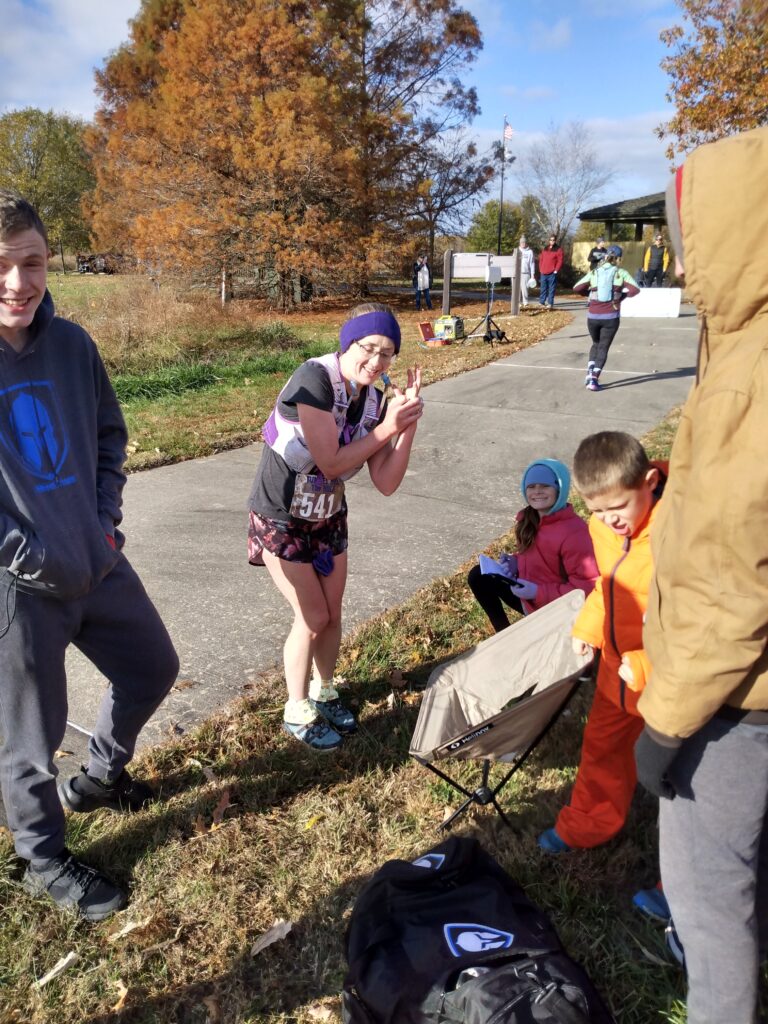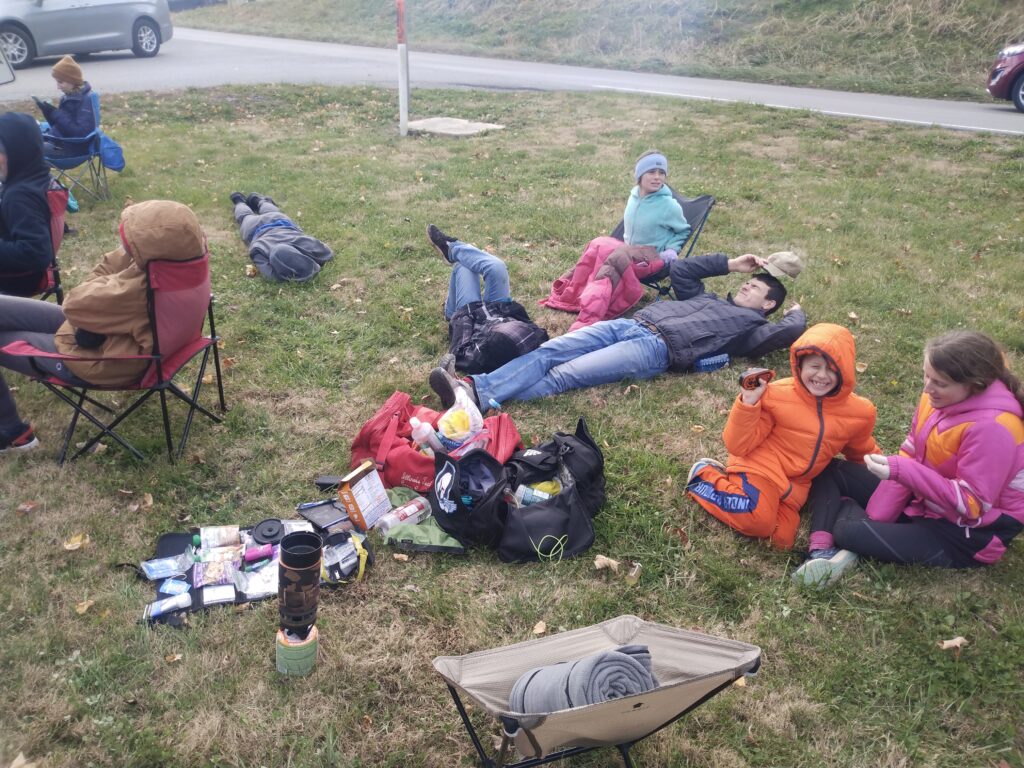The American Academy of Pediatrics recently came out with their latest clinical report on all things pertaining to youth sports. The fact that the authors gave recommendations on the marathon and ultramarathon distances is telling of how endurance running is gaining popularity among recreational athletes and families. In previous revisions of the report, discussed endurance events included the half-marathon, triathlon, and marathon and comprised a mere two paragraphs. The current edition dedicates twice as much space to addressing longer events and replaces the topic of half-marathon with a review of ultramarathon running for children.

Before reading the AAP’s recommendations, it is important to recognize that there are still conflicting opinions among researchers, but in general, it is suggested to allow children and adolescents to run marathons as long as these criteria are met:
- The child is intrinsically motivated and physically and emotionally mature for the task. This is something they want to do; Not something parents, coaches, or friends are pressuring them to do.
- The family should participate in shared-decision making with all parties involved in the routine care of the child which could include a doctor (if the child has ongoing health concerns), physical therapist or athletic trainer (if the child has ongoing injury concerns), or coach (if the child is involved in a club or school sport).
- The athlete should follow a well-designed and supervised training program.
- They must maintain normal growth.
- The prospective marathoner should understand the risks and benefits of long endurance events.
- The parent and child should understand that early participation in endurance events does not predict a high level of performance or long-term participation in the event. (In fact, anecdotal evidence suggests the opposite.)
- The family and decision-making team should continually reevaluate these factors throughout the training period.
- There is currently no research detailing injury risks in children associated with ultra marathon running. However, it is generally accepted that children twelve and younger are considered to be at high risk of injury, while children ages 12 to 15 are moderate risk. Presumably, this means that ages 16 and up are low risk when they are trained properly and all of the above criteria are met.
Three Encouraging results from the literature:
- One study shows a lower risk of “race day medical encounters” in children than adults participating in a certain marathon over a twenty-six-year period.
- Another study showed that 99% of trained children who set out to run a marathon finished.
- In a 28-week marathon training program only 18% of children reported an injury with an average loss of only 4.8 days of training. This injury rate is much lower than injury rates reported in studies observing adult runners.
From a Coach’s Perspective:
A half-marathon is not a big deal for my older athletes. They regularly run nine to twelve mile long runs in the summer, and they can accumulate that many miles at a track meet with warm up, cool down, and racing. However, I do limit the pace if the half-marathon is run during the season. Running a full out race of that distance would hinder the progress of normal training because the recovery takes too long.
I have had one athlete run a full marathon during his senior year. He supplemented his cross-country training with well-planned long runs and ran his race soon after the state cross country meet. This allowed for plenty of recovery time before track season began. He successfully completed the marathon, but he did sustain an injury during the race that needed several weeks to heal. I also ran my first marathon between cross-country season and track season of my senior year (on accident, but that’s another story). Two other former athletes completed a marathon within the first year after graduating, and they were also successful with no injuries. Another athlete participated in ultramarathon events during his high school years (without coaches’ consultation or guidance), yet he was never a significant competitor in either junior varsity level high school sporting events or ultramarathon events. He also lost training days in season his senior year to overuse injuries.
We max out in our ability to develop speed earlier in life but can continue performing endurance events at high levels well into our 30’s. This is not to say that one should wait until their 30’s to run a marathon, but it might make sense to take this into account when deciding what to spend your focus and energy on at each stage of life. Despite what we have been told, we cannot do it all. You can develop both a mile and a marathon at the same time, but with our limited resource of physical energy as humans, neither will reach its fullest potential. It is also nice, as a life long athlete, to have new horizons to look to and new goals to attain when we max out our abilities or interest in one area.
For these reasons, generally it is better for the athlete to wait until high school graduation before attempting a marathon or longer event if they participate on a school or club sports team because of the risk of injury. It would be sad to miss out on your last season of high school track because of an injury sustained jogging a marathon. I do not recommend any children involved in club or school sports run an ultra-marathon at all for the same reasons.
From a Mom’s Perspective:
I have had two of my five children request to run a marathon or longer distance. One of them is truly built for longer distances. She has more natural ability at the 10k and half without a doubt. She has accumulated several years of building a strong mileage base, and she has no injury history to speak of. But still the answer is no. My children have the opportunity to train on the cross country and track teams and compete at the distances offered in those sports. Competing and training as a team is a gift that most of us do not experience after college. It is not realistic to train well for a marathon and school sports at the same time. One or both training goals will suffer at least a little at the expense of the other. I would rather that my children learn to focus on team goals now, and they can enjoy individual running events later.
As parents, especially in the home school world, there is a great push to expose children at younger and younger ages to experiences better suited for more physically or mentally mature people, but when we do this, do we rob our children of the experience of desiring and waiting and working toward a goal? Do we rob them of the experience of finally achieving a long-awaited dream? I think of how many high school graduates in recent years have little interest in attending their own graduation ceremony. Why would they? They have already graduated three or four times before even reaching high school. It has less value because it is attached to early childhood milestones that do not require much work or perseverance on the part of the child. Let them look forward to each new phase of life with anticipation. Wisdom resides with the parents who can set an appropriate waiting period for each new phase of sport participation, not too long but also not too short, but just until the correct level of intrinsic motivation has been reached.
Hold the reigns as they grow, but spur their interest by letting them ride in the stroller on some of your shorter, easy runs when they are toddlers. As they get older, find fun community 5k’s for them to participate in like the annual Blue Bell Fun Run. Encourage sport participation in school. Relationships with friends and memories made are glue that is going to keep your kids stuck in sports. Let the Coach coach. If your child develops a relationship with another adult who reaffirms your love of the sport, this gives more support and validity to what you have been teaching your child. You, as the parent, inspire and challenge your child when you train consistently with dedication and participate in hard things. If your child has attended many of your marathons and even crewed or paced you in an ultra, they are likely to want to try it sooner or later.

Good news for parents: While long endurance events are not prohibited for your child, it is an individual decision best made on a case-by-case basis with the input of several people knowledgeable about the child’s health, training, and racing history. For most families, we can look forward to the years when we can run marathons and ultra marathons with our grown children who desire to participate in these events. In the meantime, keep fostering a love of movement and being outdoors with more age-appropriate activities that your entire family enjoys and can do together like trail 10k’s, hiking, and backpacking. Less pressure for you. Less pressure for your children. Instead of spending precious quality time trying to explain to your teenager the finer points of avoiding GI distress during races that last longer than the SAT test, you can use your time “walking along the road” to teach them your values and to show them how to live in community and how to live in light of God’s love.
As always, if you want to talk about training your kids for a marathon (or train for one yourself!), contact me!
~Coach Melissa


